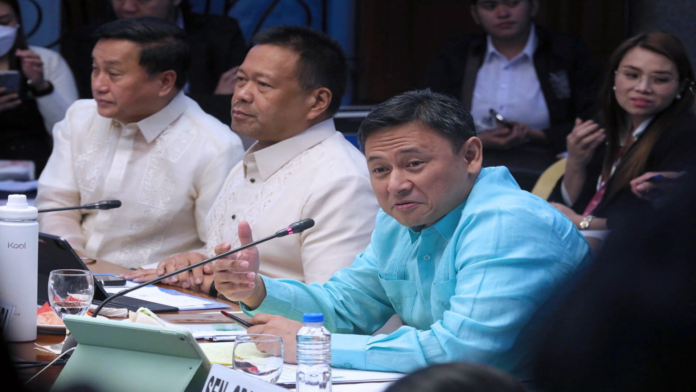The ongoing discussions on the Resolution of Both Houses No. 6 (RBH 6) in the Senate aims to educate the public on the pros and cons of relaxing the restrictive provisions of the 1987 Constitution.
Senator Sonny Angara, chair of the Subcommittee on Constitutional Amendments and Revision of Codes, said focused discussions on the economic provisions of the charter is long overdue and ought to be presented before the public for their appreciation.
“I think it’s good to go through the exercise kasi first time ito napag-uusapan na detalyado. Lagi ang usapin naka sentro sa politikal na probisyon, ‘yung dapat ba na parliamentary system. Sa akin maganda ito para sa ating mga kababayan dahil naririnig nila ‘yung mga argumento, nakapag-isip din sila at sana makapag-debate din sila (because this is the first time to be discussed in detail. Previous discussions were always about political provisions, if the parliamentary system is applicable. For me, this is good for our countrymen because they can hear the arguments, they can also think about it and debate) among themselves,” Angara said in an ambush interview on Monday.
The subcommittee had conducted two hearings so far on RBH No. 6 that deals with proposed amendments to select economic provisions of the constitution, specifically those related to public utilities, education and advertising.
During the second hearing of the subcommittee on Tuesday, among the resource persons for Charter change (Cha-cha) were the framers of the 1987 Constitution, such as former Commission on Elections commissioner Rene Sarmiento, Dr. Bernardo Villegas and Dr. Florangel Rosario Braid; former Supreme Court Associate Justice Antonio Carpio; and National Scientist Dr. Raul Fabella.
Citing a study by the Senate Economic Planning Office involving 18 countries, Angara noted that the Philippines is the only one with restrictive provisions on foreign investments in public utilities.
Based on what transpired in the first two hearings, Angara said it would be more practical to have specific rules regarding foreign investments in regular laws, rather than embedding these in the constitution so that there will be some degree of flexibility.
“’Yung batas napapalitan, napag-aaralan, mas mabilis palitan. Eh pag nasa Saligang Batas, parang mahirap palitan (The law can be amended, studied, and easier to change. But if it is in the constitution, it will be harder to amend),” Angara said.
Another hearing is expected to take up the constitutional provision on foreign investments in public services before the subcommittee moves to the provisions on education and advertising.
Angara said the Senate leadership is also open to the possibility of conducting the next hearings in Visayas and Mindanao. (PNA)
Photo credit: Facebook/senateph


